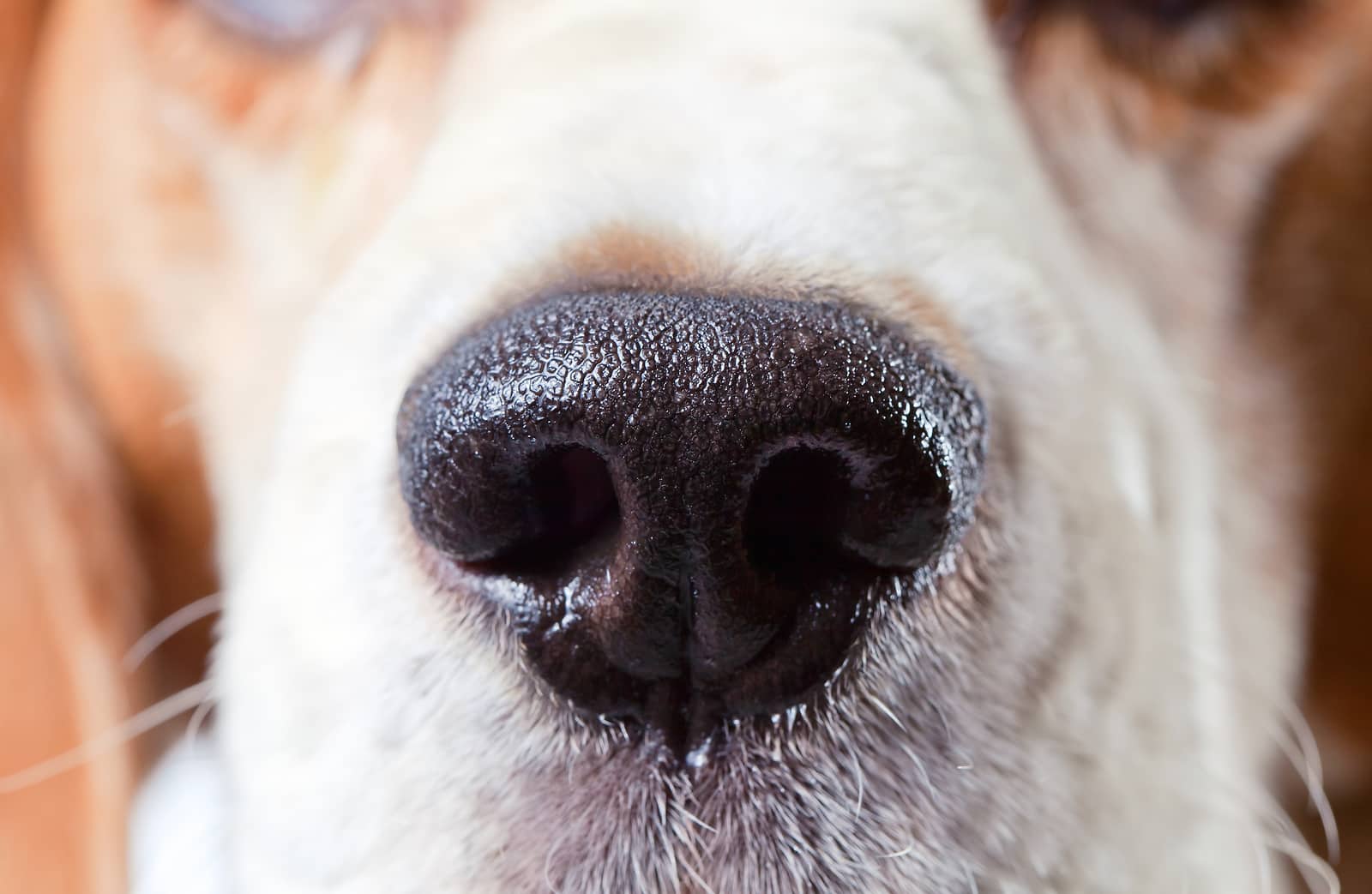FOR SOME DOG PARENTS, A DOG’S WET NOSE IS ONE OF LIFE’S GREATEST JOYS. FOR OTHERS, IT’S JUST AN ICKY MYSTERY.
You enter a room, and immediately your pooch is at your side rubbing his mucus-ridden schnoz in your face, sniffing away along with a little tongue lapping.
You react by:
-
- Ah, how wonderful and endearing to have that slimy little thing all up in your business OR…
- Uggg! How gross and disgusting you icky, sticky thing.
So why are dogs noses wet?
-
- Your nose works perfectly fine dry, so what’s up with their sniffers? It turns out there are many reasons for those wet noses – and a big misconception about what wet vs. dry noses really means.
They secrete mucus
-
- When dogs are trying to follow a specific scent, their noses make a thin layer of mucus that allows them to actually absorb scent chemicals, and therefor, smell better.
They tend to lick a lot
-
- This one seems pretty straightforward, but there’s more to it – namely, why dogs lick their noses. First, because these long snouts and noses can get dirty pretty easily, especially when they’re rooting around in food. Licking cleans them off.
- Dogs also lick their noses because of the mucus mentioned above. Why? Because they can actually lick off those scent chemicals so that the olfactory glands on the roof of their mouth can sample them.
It helps them to cool off
-
- Most dogs pant to cool off because they don’t sweat, but then again, this isn’t strictly true. Dogs do actually sweat – by secreting moisture from their paws and their nose. A really wet nose may be Fido’s way of releasing heat after exerting himself.
Dogs’ noses pick up moisture
-
- If you’ve ever watched your dog sniffing around outside, you know that it’s an “all-in” process where that nose is often being shoved right into grass, leaves, dirt, and so on. In doing this, dogs’ noses often pick up moisture from the environment, making them cold and wet.
They’re born that way
-
- Certain dog breeds just have colder, wetter noses than others due to genetics and other factors.
Just an old dogs’ tale
-
- Now it’s time to dispel a myth. It’s likely that you’ve heard tales of how a warm, dry nose means that your pooch is sick. However, ask a vet and they will tell you that the relative moisture level of your dog’s nose has little to do with whether or not she’s sick.
- Some dog’s just naturally have wetter noses than others.
- It’s important to note that dogs can be sick even if their noses are cold and wet.
- Instead of obsessing over the moisture level, you should keep an eye on the kind of discharge coming from your dog’s nose. If the mucus suddenly becomes crusty or gets thicker, this can be a sign that something is wrong. Then it’s time to get your pooch to the vet – because he/she is the one who NOSE what to do!






I am planning on getting a German Shepherd puppy this August. I have never had a pet before, so I don’t really know what to look for when it comes to them being sick. Thanks for explaining that licking can be a sign of an injury or that they have a lot of mucus. It seems if he starts doing that I should take him to an animal hospital.